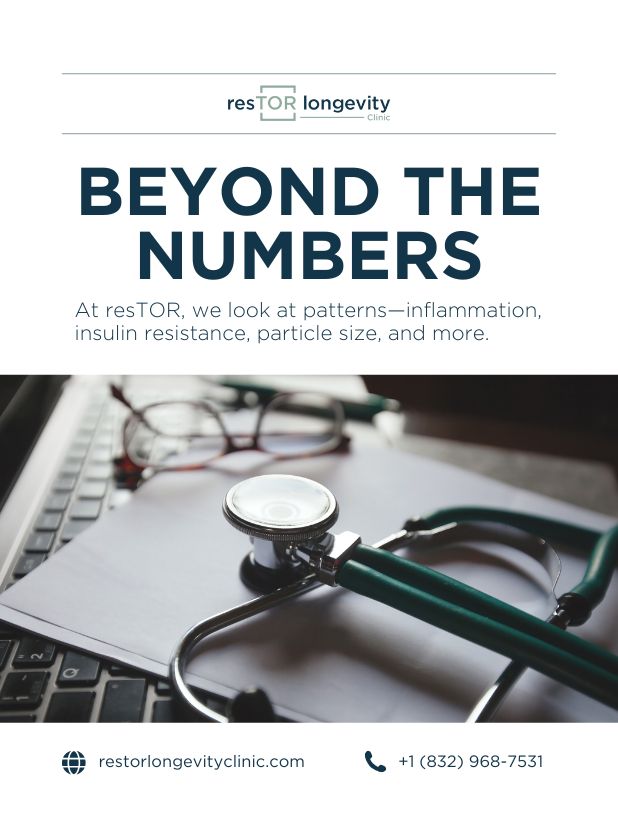Did you know that in 2023, a staggering 70% of chronic diseases are preventable with lifestyle modifications? Understanding our health at a deeper level can change your life, and using advanced diagnostic tools can transform how we approach wellness. In this article, we're going to delve into why longevity isn't just determined by single metric readings like blood pressure or weight; instead, we need to look at the full health story our bodies are telling us. Whether it's inflammation, insulin resistance, cholesterol particle size, or health patterns over time, comprehensive assessments can reveal insights that significantly affect our long-term health. Join us as we explore innovative approaches to proactive health management and the transformative power these insights can have on your quality of life.
Understanding Longevity and Health
As we continue to make advances in the field of health, it is becoming evident that longevity is not merely about extending years of life but enhancing the quality of those years. Longevity medicine emphasizes a holistic understanding of health, meaning we don't spare any details but rather pay attention to every change that occurs in the body over time.
Inflammation: The Silent Player
Chronic inflammation has been recognized as a major player in various diseases from diabetes to heart diseases, and even cancer. Research highlights its ability to remain unnoticed until it becomes too serious to ignore. For instance, autoimmune conditions can emerge silently due to persistent inflammation. Maintaining awareness about inflammation and how we can manage it through diet, exercise, and lifestyle choices becomes essential for promoting overall longevity.
Some common anti-inflammatory foods include:
- Fatty fish like salmon and sardines
- Leafy greens such as spinach and kale
- Nuts and seeds, particularly walnuts and chia seeds
- Spices like turmeric and ginger that boast anti-inflammatory properties
When integrated into your daily diet, these foods can help combat the silent inflammation that underpins many chronic diseases.
The Insulin Resistance Indicator
Research indicates that insulin resistance is a critical factor in metabolic disorders and can subtly emerge before you even realize it. A staggering number of adults face prediabetes often without any visible symptoms. Individuals affected may experience fatigue, difficulty focusing, and unexplainable weight gain. With a proactive approach, including routine screenings and personalized assessments, one can effectively uncover early signs and delve deep into the metabolic components at play.
To combat insulin resistance, consider these lifestyle changes:
- Focus on a balanced diet rich in whole grains, fiber, and less processed sugars
- Engage consistently in physical activity to enhance insulin sensitivity
- Monitor carbohydrate intake according to guidance from health professionals
The Truth About Cholesterol Particle Size
Not all cholesterol is harmful—this is a crucial misconception that needs addressing. The key lies in understanding the cholesterol particle size. Small, dense LDL particles can be much more harmful than larger, fluffier LDL particles. Advanced diagnostics can determine your particle sizes, shedding light on your specific cardiovascular risks. Individuals can then modify their diets to lower LDL levels and improve those particle sizes through a focused dietary plan.
To improve cholesterol particle profile:
- Eliminate trans fats found in many processed foods
- Increase soluble fiber in your diet, which can help lower cholesterol levels
- Include healthy fats like avocados and olive oil to promote heart health
Tracking Health Through Time
When considering one’s health, it’s essential to recognize patterns over time rather than focus solely on individual readings. A person’s health trajectory provides insight into how their lifestyle choices impact their overall wellness.
For instance, tracking blood pressure, weight, and cholesterol levels across various timeframes helps in constructing a concrete picture of one's health. This accumulation of data not only guides adjustments in lifestyle but becomes a story that can facilitate preventive actions and promote overall health. Regular monitoring is key to recognizing red flags early on.
Holistic Health and Personalized Wellness Programs
At the heart of holistic health is the importance of personalized wellness programs. Every individual may require different approaches to wellness based on their unique genetic background, lifestyle, and personal health history. By utilizing advanced diagnostics such as AI full-body MRI scans, hormone analysis, and genome sequencing, a clearer picture of individual health can be brought to light. These assessments allow personalized programs that embrace key pillars of health, such as nutrition, sleep, exercise, mental health, and disease risk prevention.
Effective strategies to enhance overall wellness:
- Create a nutrition plan tailored to your body’s specific needs
- Integrate a consistent fitness program informed by data acquired through health assessments
- Develop strategies for better sleep hygiene to improve your overall quality of life
- Utilize mindfulness and stress-reduction practices to support mental health
The Future of Longevity Medicine
As the fields of technology and medicine evolve, we can expect a more integrated approach to health, combining biological insights with personalized care strategies. The ultimate objective is to empower individuals with the knowledge and tools needed for proactive health management. We need to embrace the narrative our health data tells us and take actionable steps toward a more fulfilling life.



